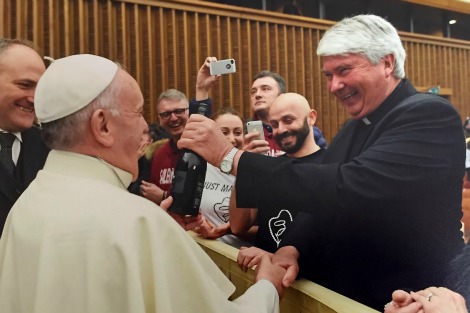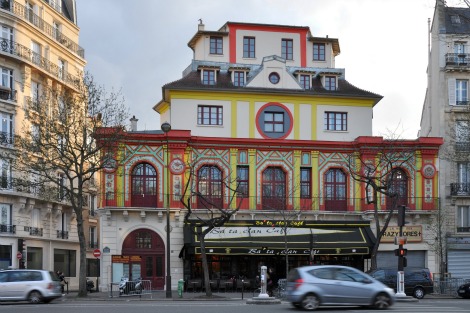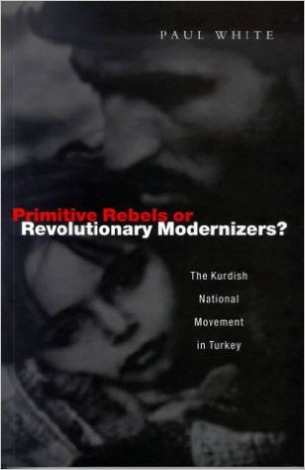Keywords: World Day Of Peace
There are more than 200 results, only the first 200 are displayed here.
-

RELIGION
- Frank Brennan
- 07 March 2016
'On his last two visits to Latin America, Pope Francis has focused on past and present relationships between indigenous peoples and their colonisers. This Jubilee Year of Mercy perhaps it could be a blessed moment for Aboriginal Australians and descendants of their colonisers to walk together through the Door of Mercy at the St Francis Xavier Cathedral, calling to mind the sins and endeavours of the past, the achievements and commitments of the present, and the hopes and aspirations of the future.' Fr Frank Brennan SJ, Lenten Talk, Norwood Parish, 3 March 2016
READ MORE
-

MEDIA
- Kate Mani
- 27 January 2016
2 Comments
A few months ago, someone I know died. We had only met a couple of times, accepted each other's Facebook friend requests, and messaged each other on and off. But I grew to know him well. His face filled my Facebook newsfeed weekly. Now I see his family's farewells, and the preceding year of photos makes it even easier to picture their grief. Be it the loss of a friend or a city shattered by terror, the 21st century colossus that is social media has reinvented the wheel of commemoration.
READ MORE 
-

RELIGION
- Frank Brennan
- 25 January 2016
22 Comments
Hailing from Argentina, Francis puts his trust neither in ideological Communism nor in unbridled capitalism. We need to enhance international security, building the rule of law within multilateral organisations, and fostering the climate for investment sensitive to the triple bottom line - economic, social and environmental. I return from Rome grateful that we have a pope prepared to open these questions, accompanied by senior prelates happy to mix it with business and community leaders.
READ MORE 
-

INTERNATIONAL
- Bronwyn Lay
- 14 January 2016
3 Comments
As I marched for Remembrance Day in our small village in France, I wondered, 'How long will these villages keep these ceremonies? When will someone decide these wars are too long ago or too far away?' Two days later, Paris was attacked. The news came like war does: sudden and violent. Then came declarations of a state of emergency and the closing of borders. My eldest daughter was over the border in Switzerland without a passport. War starts in increments, in the small ordinary worries of families.
READ MORE 
-

AUSTRALIA
- Frank Brennan
- 10 December 2015
I first met this Tony on my regular visits here to Darwin when he was working at the North Australian Aboriginal Legal Aid Service and then when he set up the mediation services under the auspices of Anglicare. In later years I knew him when he was your Anti-Discrimination Commissioner. He was a quiet, considered, gentle, strong and principled man. On Human Rights Day, it is only fitting that I honour Tony by offering some reflections on the architecture for human rights in Australia, on the contemporary human rights controversies, and on the way forward for better protection of the human rights of Aborigines and asylum seekers, two marginalised groups who had a special claim on Tony's sympathies.
READ MORE
-

RELIGION
- Frank Brennan
- 09 December 2015
2 Comments
'I joined the Jesuits in 1975 just as the previous 32nd General Congregation (GC32) was concluding. Pedro Arrupe was at the height of his powers. That Congregation asked the question: 'What is it to be a companion of Jesus today?' and answered unequivocally, 'It is to engage, under the standard of the Cross, in the crucial struggle of our time: the struggle for faith and that struggle for justice which it includes.' I have always regarded myself as a GC32 Jesuit. Many of those who gathered for GC33 thought that the GC32 mission was a little too one-dimensional. I suspect Bergoglio was one of those.' Frank Brennan on the eve of the Catholic Church's Jubilee Year of Mercy.
READ MORE
-

RELIGION
- Frank Brennan
- 27 November 2015
2 Comments
'The crisis of child sexual abuse in our societies has required that our institutional procedures be more transparent and that we learn from the ways of the world in exercising power openly and justly. This means we have to restructure some of our church arrangements so that power is exercised accountably and transparently. All of us who have positions of influence and power in institutional churches need to be attentive to the voices of those who have suffered within our institutions.' 'Discerning the place for the prophetic voice and pragmatic cooperation of the churches in the great moral questions of the age', address to the Association of Practical Theology in Oceania conference, 26 November 2015.
READ MORE
-

INTERNATIONAL
- Chris Middleton
- 16 November 2015
14 Comments
In many of these conflicts religious difference constitutes an important element in the conflict. Some commentators point to religion as the cause of many of humankind's wars. In a sense they are correct, as they would be also if they ascribed war to humankind's quest for liberty, equality, justice, or even love. It is a paradox of the human condition that that which is noblest in the human often gives way to violence and intolerance. How are we supposed to react to such an attack?
READ MORE 
-

INTERNATIONAL
- Bronwyn Lay
- 16 November 2015
16 Comments
As I marched for Remembrance Day in our small village in France, I wondered, 'How long will these villages keep these ceremonies? When will someone decide these wars are too long ago or too far away?' Two days later, Paris was attacked. The news came like war does: sudden and violent. Then came declarations of a state of emergency and the closing of borders. My eldest daughter was over the border in Switzerland without a passport. War starts in increments, in the small ordinary worries of families.
READ MORE 
-

AUSTRALIA
- Frank Brennan
- 23 October 2015
4 Comments
Francis knows there are all sorts of issues inside and outside the Church where for too long people with power have tried to keep the lid on, in the hope that the problems and complexities will go away, often by parodying those who see the problems or complexities as small 'l' liberals or cafeteria Catholics. He delights in being joyful and troubled while contemplating big problems, calling people of good will to the table of deliberation reminding them of the kernel of the Christian gospels. He has the faith and hope needed to lift the lid without fear and without knowing the answers prior to the dialogue occurring.
READ MORE
-

INTERNATIONAL
- Paul White
- 16 October 2015
1 Comment
Last Saturday's bomb blasts in the Turkish capital Ankara, which left 128 dead and some 246 wounded, occurred in the wake of the ruling AK Party's recent electoral defeat and its decision to call a fresh election. Since losing the election, President Erdoğan has effectively dumped a peace deal with the Kurdish nationalist PKK and restarted Ankara's war against the Kurdish people. Dark dies lie ahead for ordinary Turks and Kurds in Turkey until the grip of ultranationalism is broken.
READ MORE 
-

AUSTRALIA
- Andrew Hamilton
- 24 September 2015
3 Comments
This year's International Day of Peace comes amid much war-making. Those with a feel for history may see it as an echo of an idealistic age that had experienced years of war and was determined to shape a better world. To those caught in fear and violence, and promised another ten years of the same, it will come as an insinuating hope against hope; a reproach to a world that stirs rather than douses wars.
READ MORE 